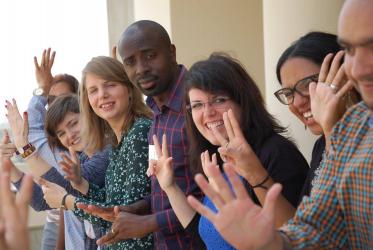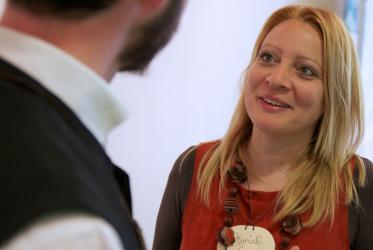Displaying 481 - 500 of 506
Gender sharpens mission conversations
21 April 2015
WCC delegation expresses solidarity with Ukraine
20 March 2015
WCC launches global ecumenical network for advocacy for just peace
09 December 2014
Pilgrimage of justice and peace gives vision for WCC programmes
22 November 2014
WCC commission leadership selected
13 August 2014
“You don't all have to be the same”
01 July 2014
New days, new ways for mission and evangelism
23 April 2014
Assembly renews churches’ commitment towards justice and peace
08 November 2013












